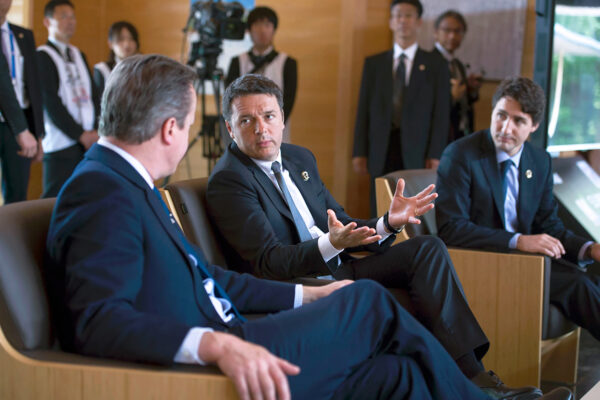
Italy’s Democratic Party leader, Matteo Renzi, launched his candidacy for reelection this week by presenting himself as the alternative to nationalist leaders in his own country as well as America and France.
“Some people wanted a party congress to find an alternative to Renzi-ism. It needs to be done as an alternative to Trumpism, Le Penism and even Grilloism,” the former prime minister said, referring to the new president of the United States, the leader of France’s National Front and the founder of Italy’s anti-establishment Five Star Movement.
Renzi admonished center-left lawmakers on Monday to unite around a platform that confronts populism rather than succumb to infighting.
Early elections
A congress to elect the next Democratic Party leader is now likely to be held in April or May, which could be followed by early elections in June — assuming lawmakers have enough time to harmonize the election laws.
Renzi stepped down as prime minister in December after losing a referendum on constitutional reforms.
As a result of this defeat, the Italian Senate would now be elected under different rules from the lower house. The Constitutional Court has instructed lawmakers to ensure that both chambers are elected similarly.
Culture war
Although Renzi remains the most visible figure on the left, a comeback isn’t assured.
The old left blames him for alienating blue-collar and public-sector workers, who traditionally formed the party’s core constituency.
This isn’t wrong, but it mistakes the problem.
Like social democrats elsewhere, Italy’s are trying — and failing — to repair the coalition between working-class voters with socially conservative views on the one hand and middle-income voters with socially liberal views on the other.
Renzi sided with the latter in legalizing civil unions for gay couples and reforming Italy’s complex labor code.
The changes made it easier for firms to hire and fire workers, which created opportunities for young, college-educated professionals but left older, unionized workers less secure.
Taking sides
Renzi’s comments on Monday do not suggest he plans to back down. Rather, he is decidedly taking sides in what the Atlantic Sentinel calls Europe’s blue-red culture war over modernity.
By embracing lower taxes, liberal economic reforms and free trade, Renzi is siding with outward-looking, urban “blue” voters and against the redistributive and protectionist preferences of traditional, small-town and rural “red” voters.
This may be hard for some Democrats, especially those with roots in Italy’s Communist Party, to accept, but it is the political right that now appeals more to low-skilled workers and pensioners, who fear the county’s social norms are changing too fast.
Renzi knows that his real competition is the Five Star Movement. It speaks to both young and idealistic voters as well as middle-class voters who are fed up with the political class’ inability to reform Italy. Renzi needs to persuade them he deserves another chance.
